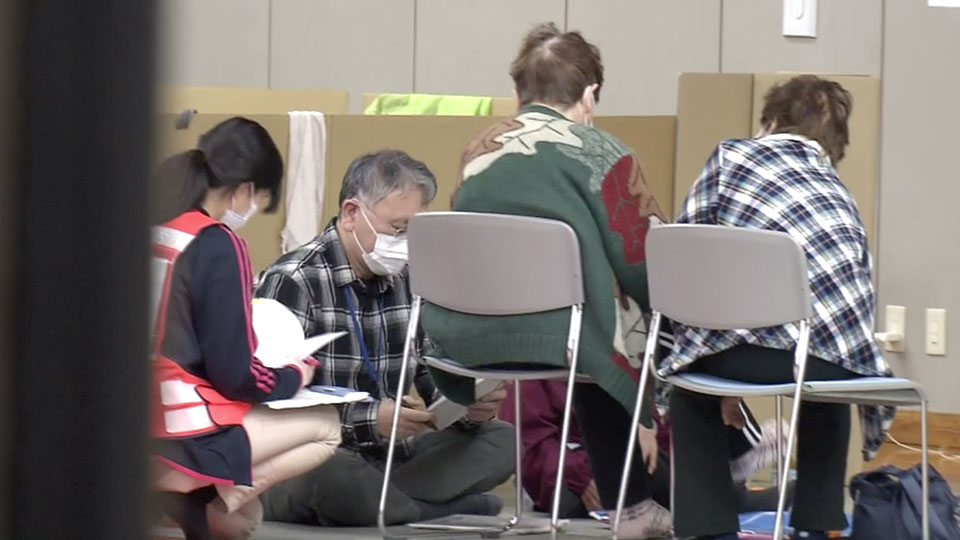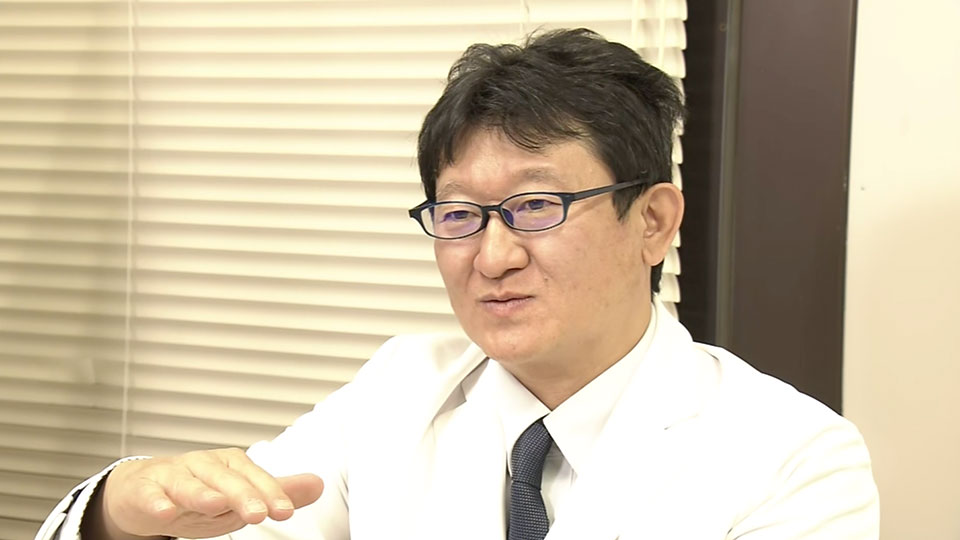
What's economy class syndrome?
Toyama Prefecture is one of the areas seriously damaged by the earthquake two weeks ago.

Kobata Takashi is a doctor at Himi Municipal Hospital. He's been checking the health of people in evacuation centers almost every day since January 4. He's making sure no one is suffering from economy class syndrome.

The doctor says the syndrome can develop when people stay in the same position for long periods of time. Blood clots form due to poor blood flow and become lodged in blood vessels in the lungs... and can even lead to death.
For more: Japan earthquake: The danger of economy class syndrome
People tend to lack exercise while living in evacuation centers... and the risk increases.
How to prevent the syndrome

Doctor Kobata recommended this woman wear special stockings with strong elasticity to improve her blood flow, and help blood in the vein flow toward the heart.
But another expert says people should remove the stockings immediately if they feel any discomfort or pain when wearing them.
Stress and mental care will be crucial

As people are having to live for extended periods under evacuation, Kobata is now concerned about the effects of stress. Some of his patients say they can't sleep, and feel like they are shaking even when there is no quake. Some even jump up from fear when they are sleeping.

Doctor Kobata says he's worried about stress leading to cardiovascular diseases such as myocardial infarction, aortic dissection, and other problems. He says from now on, mental care will be the most important thing.
How to care for children feeling stress

Stress is also affecting children. This family lives in Niigata Prefecture, which was affected by the earthquake. The mother told us about her children's irregular behavior under the condition that we don't use their names.
Since the quake hit, she says her 4-year-old boy is now afraid of even watching the news... and often hides under the table, or says he is afraid of tsunami when he takes a bath.

The 4-year-old boy says he's afraid of his house, because of his experience of sudden tremors and things falling.
The boy's mother says the boy is now not able to do things he could do on his own, and asks her to go with him to the toilet and be beside him while he's asleep because he's afraid.
She says she is worried about the change in his behavior and wonders whether to honestly tell the children what is happening, or try to shut out some information about the disaster.
What's more, her children started pretending that a tsunami is coming. She thought they were practicing running away, but they say they are just playing.

Takahashi Sho is an expert who says such actions have been seen in the past at areas affected by disasters. He says it is a natural way to deal with stress.
He says parents may think it's inappropriate behavior, but they should bear in mind that it's difficult for children to speak about how they feel. Takahashi wants parents to just watch over their children warmly. The doctor also points out that parents should also try to keep the children away from disaster-related information.
Try to avoid information overload... and smile
Takahashi explains the situation by presenting the image of a heart as a cup. He says if people watch many painful videos, the cup will overflow. So he thinks people should reduce the amount of information they consume. He recommends exercising and stretching together, deep breathing, and watching something that makes you laugh.
He says it's important for parents to provide a place where children can begin to smile again, even a little bit.
Children's needs often end up lower on priority list
A non-profit organization based in Tokyo called Katariba has set up rooms in Ishikawa Prefecture where children who have no recreation space can play freely. They say the support that children need is often overlooked, so they hope this will help them.
The group has been offering emotional care for children following the 2011 Great East Japan Earthquake.
Ishii Takeshi of Katariba says it's very important that normalcy is restored to children's lives in order for them to avoid emotional stress.

He says parents and guardians also need to think about rebuilding their own lives and livelihoods. So he hopes his group's efforts can give parents time to think about themselves and their future.
Since the earthquake, the group has set up six play areas in Ishikawa prefecture. It plans to continue such efforts while cooperating with local governments.

Ishii says the next challenge will likely be addressing the children's educational needs. He says the group will offer necessary materials and places to study, and will continue such efforts over the long term.

